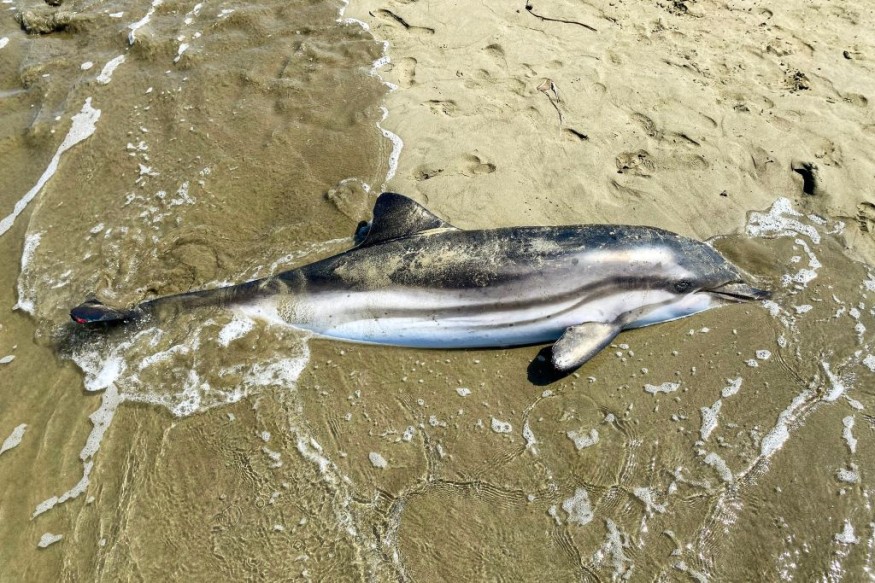A dolphin got stranded at the Quintana Beach in Texas, United States. Local officials said the sick animal eventually died after a crowd of people pushed it back to the sea while riding on it. The dolphin died even before emergency services arrive, highlighting the vulnerability of the marine mammal to stress.
Stranded Dolphin

Stranded alive, a female dolphin reportedly found itself struggling for survival along the shores of the Texas beach. However, it has also drawn the unwanted attention of a large number of beachgoers on the evening of April 10.
According to Quintana Beach County Park officials, the stranded mammal was located along a shore south of the city of Houston, as per a CNN. The Brazoria County authorities reportedly called the park staff to keep the beachgoers away from the sick dolphin but were not able to make it on time.
By the time the rescuers reached the area, the officials said the perpetrators were long gone. The dead dolphin was taken for a non-human autopsy called necropsy to determine the reason why it got stranded in the first place.
Officials from the National Oceanic and Atmospheric Administration (NOAA) were aware of the circumstances related to the dolphin's death and were attempting to get further information about it, according to CNN.
Measures to Be Taken
In a Facebook post by the non-profit Texas Marine Mammal Stranding Network (TMMSN) on April 13, it can be seen that approximately dozens of people are not only riding with the sick animal but also swimming with it. The TMMSN also said such types of harassment can cause stress to wild dolphins.
The FB post emphasized that these actions are also dangerous to the people involved and are illegal, making them punishable by law associated with fines and jail time if found guilty.
In addition, the rescue group reminded the public that if a dolphin or whale gets stranded in Texas, pushing, swimming, and interacting with them is not advisable. Instead, calling concerned authorities is highly recommended.
Marine Mammal Protection Act
Enacted in 1972, the NOAA Fisheries states that the Marine Mammal Protection Act (MMPA) was created to implement a national policy to prevent the significant decline of marine mammal species as crucial elements of the ecosystems.
In general, the MMPA prohibits the following actions:
- Unauthorized importation of marine mammals and marine mammal products
- Any attempt or action to capture, harass, hunt, feed, and kill any marine mammal
- Related actions that undermine and threaten the life of a marine mammal
Violation of the MMPA may lead to civil penalties of up to $11,000 USD and up to a maximum of one year of imprisonment, as per NBC News. In relation to the Texas beach incident, the actions taken by the beachgoers on the dolphin fall under the second clause of the MMPA's violations.
The NOAA Fisheries is responsible for protecting dolphins, porpoises, seals, sea lions, and whales.
Other US agencies tasked to implement the MMPA are the U.S. Fish and Wildlife Service which oversees the defense of manatees, polar bears, sea otters, and walrus. Meanwhile, the Marine Mammal Commission supervises domestic and international policies and actions of federal agencies.
Related Article : Friendly Dolphin Gives Stranded Seaman Hope
© 2025 NatureWorldNews.com All rights reserved. Do not reproduce without permission.





